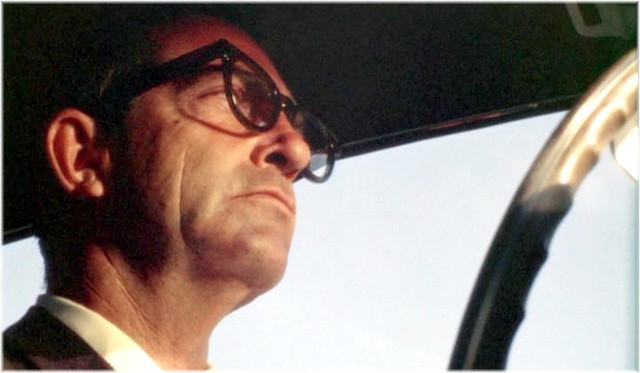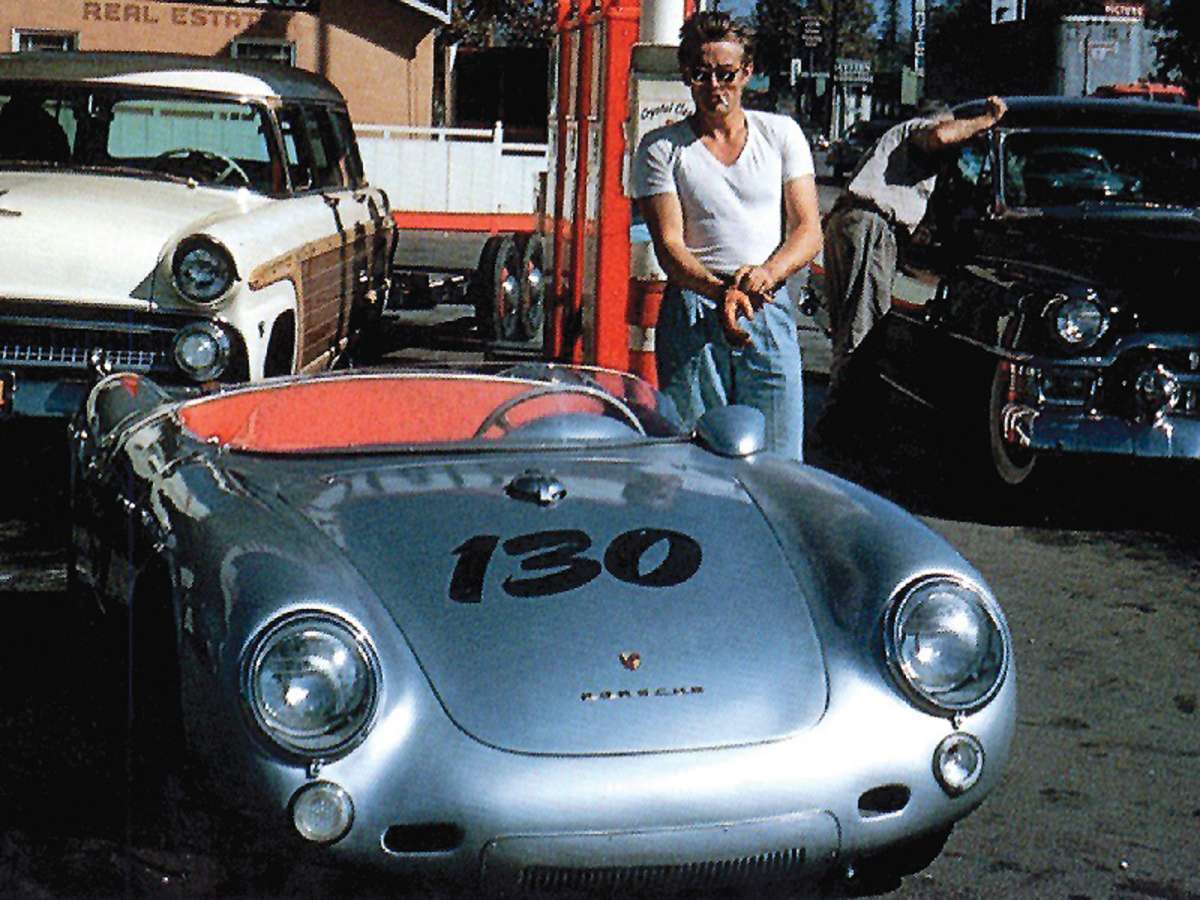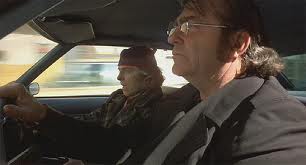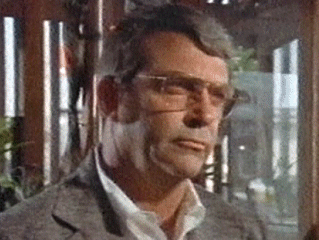Curbside Cinema: Bill Hickman – Stunt Driver Extraordinaire
BY
JASON SHAFER
– JANUARY 31, 2013
For lovers of Hollywood car chases, the late 1960s and early 1970s could easily be considered as the pinnacle of believable, high-quality chases.
It was an era before today’s computer-generated chases that defy the laws of physics were conceived: When a movie maker wanted a particular car stunt, they had to pay a person to get in a car and actually do it. Talk about separating the men from the boys.
There was one man whose abilities rose above the rest, but odds are only a few of you have ever heard of Bill Hickman.
Bill Hickman, who was born in 1921, became an actor and stunt man. Although capable of performing all types of stunts, his biggest talent was driving automobiles any way someone wanted.
In the 1950s, Hickman was friends with (and driving instructor to) actor and icon James Dean. Hickman was the driver of Dean’s Ford station wagon (seen here in the background) on the fateful 1955 day when Dean collided with Donald Turnupseed, near Cholame, California (which is referenced in a movie review here). In a subsequent interview, Hickman said he was holding Dean’s body when he expired.
Hickman appeared in many pictures in various roles, yet he is best known for three movies. Let’s zoom out and examine them individually:
Bullitt, 1968: For many, it contains the definitive movie car chase, as Bullitt certainly helped set the standard for realistic car chases. While the internet has an abundant number of articles covering this car chase, it all boils down to a few key points: Hickman was the driver of the ’68 Charger R/T, and he appears on-screen as the driver/hit man. The Charger, powered by a 440 cubic inch V8, was being pursued by actor Steve McQueen, playing the title role while giving chase in his ’68 Mustang GT.
According to various articles, the two Mustangs used required serious reinforcement to withstand the 12-day torture of filming the chase through the hills, curves and traffic of San Francisco. Conversely, the two Chargers required little-to-no reinforcement–and they flat outran the Mustang during filming. The City of San Francisco was quite accommodating to the production of this film, closing many streets during the filming of the chase.
Getting the desired results from the Mustang took three drivers, including McQueen; Hickman was the only driver of the Charger.
The French Connection, 1971: Three years after Bullitt, Hickman was back on the big screen. Besides appearing in a small, non-driving role, he (and others) piloted the ’71 Pontiac LeMans commandeered by Gene Hackman’s “Popeye” Doyle character.
This particular chase is unique, as Doyle is pursuing an elevated train through New York City. There is some debate about whether the bumper-mounted camera was filming at a normal speed, or at a slower speed that would help create a high-speed illusion.
This chase was filmed, in piecemeal fashion, over the course of a couple of weeks. Rumored to be edited to correspond to the dynamics of Santana’s Black Magic Woman, this chase was filmed on streets that were not closed. When the Hackman character hits the car, it was unintentional; actually, Hickman was negotiating the unknown actions of other drivers. However, the introduction of the baby carriage was an intentional part of the chase.
The Seven-Up’s, 1973: In the 1973 movie The Seven-Up’s, Bill Hickman returned, with longer hair, for a role similar to his role in Bullitt. Comparing the chase in The Seven-Up’s to the one in Bullitt is hard to avoid: Both have similar stunts, lack dialogue and background music, and were arranged and produced by the same person.
Hickman is a bad guy piloting a ’73 Pontiac Grand Ville, which is being pursued by Roy Scheider’s Pontiac Ventura. If you found the guy riding shotgun (literally) in Bullitt a bit creepy, he has nothing on the passenger in The Seven-Up’s. After watching these two clips back-to-back, Scheider’s Ventura sounds a lot like McQueen’s Mustang. There’s the same level of adrenaline rush provided by Bullitt, yet this chase comes across as grittier, perhaps due to the grayness of the New York winter or the scene with the children playing.
The climax of this chase was Hickman’s idea, and was his tribute to actress Jayne Mansfield.
All three of these chases are excellent in their realism, even if their continuity of location isn’t always precise. For the chase in The Seven Up’s, the passenger was in the car for the bulk of the filming, and those winces are genuine–an added dimension of realism that simply is not being replicated in current movies. According to one account, the actor who was the passenger in the Charger in Bullitt was so shaken by Hickman’s driving poetry that he begged to be let out of the car. Instead, he was filled with tranquilizers and told to get back to work.
Following his involvement in The Seven Up’s, Hickman transitioned into the role of stunt coordinator. It was a natural progression: Now 52 years of age, he was finally feeling the effects of injuries he suffered in various movies, including How To Stuff A Wild Bikini. As a driver, Hickman’s legacy includes not only his contributions to these three chase movies, but also his ability to perform any driving stunt repeatedly. Nearly 30 years after his death, from cancer, in 1986, Hickman is still bringing delight to moviegoers everywhere.




